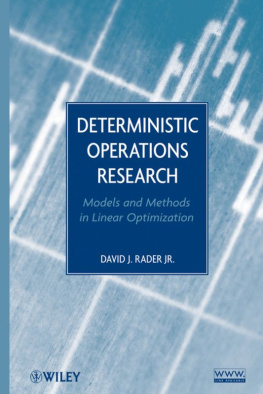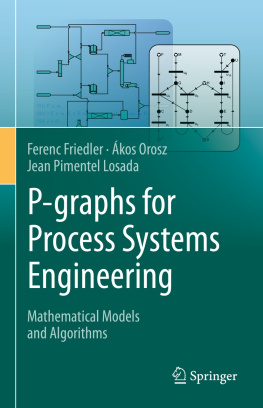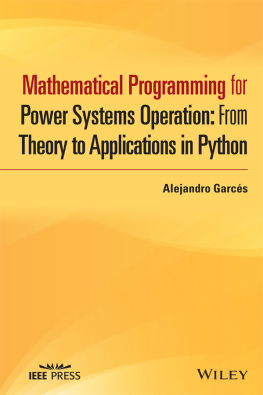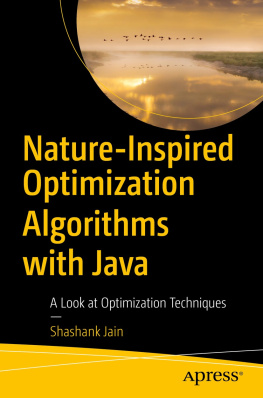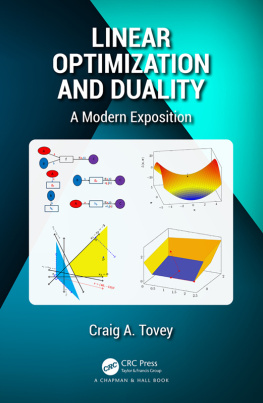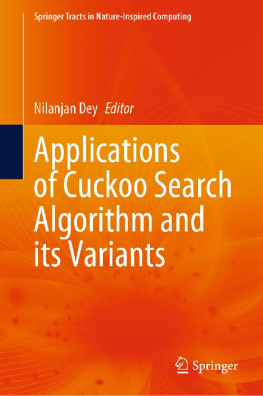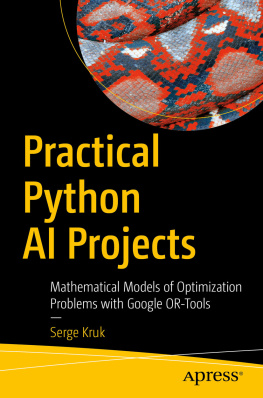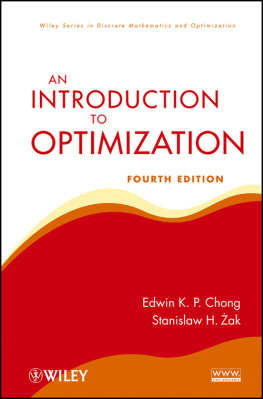David J. Rader - Deterministic Operations Research: Models and Methods in Linear Optimization
Here you can read online David J. Rader - Deterministic Operations Research: Models and Methods in Linear Optimization full text of the book (entire story) in english for free. Download pdf and epub, get meaning, cover and reviews about this ebook. year: 2010, publisher: Wiley, genre: Science. Description of the work, (preface) as well as reviews are available. Best literature library LitArk.com created for fans of good reading and offers a wide selection of genres:
Romance novel
Science fiction
Adventure
Detective
Science
History
Home and family
Prose
Art
Politics
Computer
Non-fiction
Religion
Business
Children
Humor
Choose a favorite category and find really read worthwhile books. Enjoy immersion in the world of imagination, feel the emotions of the characters or learn something new for yourself, make an fascinating discovery.
- Book:Deterministic Operations Research: Models and Methods in Linear Optimization
- Author:
- Publisher:Wiley
- Genre:
- Year:2010
- Rating:4 / 5
- Favourites:Add to favourites
- Your mark:
Deterministic Operations Research: Models and Methods in Linear Optimization: summary, description and annotation
We offer to read an annotation, description, summary or preface (depends on what the author of the book "Deterministic Operations Research: Models and Methods in Linear Optimization" wrote himself). If you haven't found the necessary information about the book — write in the comments, we will try to find it.
Optimization modeling and algorithms are key components to problem-solving across various fields of research, from operations research and mathematics to computer science and engineering. Addressing the importance of the algorithm design process. Deterministic Operations Research focuses on the design of solution methods for both continuous and discrete linear optimization problems. The result is a clear-cut resource for understanding three cornerstones of deterministic operations research: modeling real-world problems as linear optimization problem; designing the necessary algorithms to solve these problems; and using mathematical theory to justify algorithmic development.
Treating real-world examples as mathematical problems, the author begins with an introduction to operations research and optimization modeling that includes applications form sports scheduling an the airline industry. Subsequent chapters discuss algorithm design for continuous linear optimization problems, covering topics such as convexity. Farkas Lemma, and the study of polyhedral before culminating in a discussion of the Simplex Method. The book also addresses linear programming duality theory and its use in algorithm design as well as the Dual Simplex Method. Dantzig-Wolfe decomposition, and a primal-dual interior point algorithm. The final chapters present network optimization and integer programming problems, highlighting various specialized topics including label-correcting algorithms for the shortest path problem, preprocessing and probing in integer programming, lifting of valid inequalities, and branch and cut algorithms.
Concepts and approaches are introduced by outlining examples that demonstrate and motivate theoretical concepts. The accessible presentation of advanced ideas makes core aspects easy to understand and encourages readers to understand how to think about the problem, not just what to think. Relevant historical summaries can be found throughout the book, and each chapter is designed as the continuation of the story of how to both model and solve optimization problems by using the specific problems-linear and integer programs-as guides. The books various examples are accompanied by the appropriate models and calculations, and a related Web site features these models along with Maple(TM) and MATLAB(R) content for the discussed calculations.
Thoroughly class-tested to ensure a straightforward, hands-on approach, Deterministic Operations Research is an excellent book for operations research of linear optimization courses at the upper-undergraduate and graduate levels. It also serves as an insightful reference for individuals working in the fields of mathematics, engineering, computer science, and operations research who use and design algorithms to solve problem in their everyday work.
David J. Rader: author's other books
Who wrote Deterministic Operations Research: Models and Methods in Linear Optimization? Find out the surname, the name of the author of the book and a list of all author's works by series.

